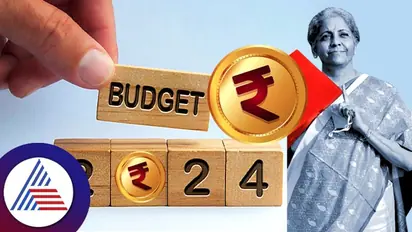India Inc's wishlist for Interim Budget 2024: GST, subsidies and affordable housing in focus

Synopsis
Observing the swift growth of the Indian economy amidst a global slowdown, the Confederation of Indian Industry (CII) has put forth several policy recommendations for the Narendra Modi government. These suggestions are anticipated to be potentially announced in the upcoming Interim Budget 2024.
As India gears up for its interim Budget 2024 on February 1, the Confederation of Indian Industry (CII) has presented a comprehensive wish list to Finance Minister Nirmala Sitharaman. Acknowledging India's rapid economic growth amidst global slowdowns, the CII proposes a range of policy measures to sustain and amplify growth across various sectors. Key recommendations include fiscal consolidation, GST restructuring, divestment prioritization, increased capital expenditure, targeted subsidy revisions, and a renewed focus on affordable housing. This article delves into the key suggestions put forth by India Inc.
Fiscal Consolidation and GST Restructuring
The CII emphasizes the need for balancing fiscal consolidation with economic growth, suggesting a reduction in the fiscal deficit to around 5.4% of the GDP in the upcoming financial year. Additionally, the CII proposes a three-rate structure for the Goods and Services Tax (GST), with lower rates for essential items, standard rates for most goods, and higher rates for luxury and demerit goods. This restructuring aims to enhance tax rationalization and facilitate ease of compliance.
Divestment and Capital Expenditure
In line with the government's divestment program, the CII recommends a transparent process for soliciting investor interest in all Public Sector Enterprises (PSEs) slated for privatization. Prioritizing PSEs based on investor interest is suggested to streamline the divestment process. The industry body also calls for a 20% increase in the budget for capital expenditure, reaching Rs 12 lakh crore, to stimulate economic activity and infrastructure development.
Targeted Subsidy Revisions
To optimize subsidy distribution, India Inc proposes a revision of food and fertilizer subsidies based on updated datasets. This approach aims to ensure that subsidies are targeted more effectively, reaching those who need them the most.
Affordable Housing and Manufacturing Promotion
The CII advocates for the extension of the interest subvention scheme for affordable housing, covering total housing costs up to Rs 35 lakh, a significant increase from the current Rs 25 lakh limit. Additionally, the industry body recommends the launch of a 'National Mission for Advanced Manufacturing' to enhance quality and productivity. Expanding Production-linked Incentive schemes to labor-intensive sectors such as apparel, toys, and footwear is suggested to boost employment generation.
Ease of Doing Business and MSME Promotion
To facilitate ease of doing business, the CII urges the government to continue decriminalizing business-facing laws while strengthening dispute resolution mechanisms. The creation of a separate vertical for micro-enterprises in the MSME Ministry is proposed to promote the growth of the Micro, Small, and Medium Enterprises (MSME) sector.
Import Tariff Rationalization and Research & Development
The CII recommends a three-tier duty structure for import tariffs, with zero or low duties for raw materials and inputs, standard rates for final goods, and intermediate goods falling in between. Furthermore, the industry body suggests an increase in the share of research and development (R&D) in the nation's GDP to 1.25% by 2025 and 2.5% by 2030.
Skill Development Integration
The CII proposes the integration of all skill development schemes with schools and colleges, both public and private. This linkage is envisioned to ensure effective skill development among the populace, aligning it with the evolving demands of the job market.
India Inc's wish list for the interim budget reflects a nuanced understanding of the current economic landscape and presents targeted recommendations to foster sustainable growth. The proposals span diverse sectors, addressing issues from fiscal consolidation to affordable housing and manufacturing promotion. As the government prepares to unveil the budget, the implementation of these suggestions could play a pivotal role in shaping India's economic trajectory in the coming years.
Stay updated with all the latest Business News, including market trends, Share Market News, stock updates, taxation, IPOs, banking, finance, real estate, savings, and investments. Track daily Gold Price changes, updates on DA Hike, and the latest developments on the 8th Pay Commission. Get in-depth analysis, expert opinions, and real-time updates to make informed financial decisions. Download the Asianet News Official App from the Android Play Store and iPhone App Store to stay ahead in business.